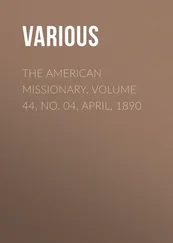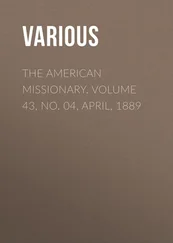Elizabeth Ellet - The Women of The American Revolution, Vol. 2
Здесь есть возможность читать онлайн «Elizabeth Ellet - The Women of The American Revolution, Vol. 2» — ознакомительный отрывок электронной книги совершенно бесплатно, а после прочтения отрывка купить полную версию. В некоторых случаях можно слушать аудио, скачать через торрент в формате fb2 и присутствует краткое содержание. Жанр: foreign_antique, foreign_prose, на английском языке. Описание произведения, (предисловие) а так же отзывы посетителей доступны на портале библиотеки ЛибКат.
- Название:The Women of The American Revolution, Vol. 2
- Автор:
- Жанр:
- Год:неизвестен
- ISBN:нет данных
- Рейтинг книги:5 / 5. Голосов: 1
-
Избранное:Добавить в избранное
- Отзывы:
-
Ваша оценка:
- 100
- 1
- 2
- 3
- 4
- 5
The Women of The American Revolution, Vol. 2: краткое содержание, описание и аннотация
Предлагаем к чтению аннотацию, описание, краткое содержание или предисловие (зависит от того, что написал сам автор книги «The Women of The American Revolution, Vol. 2»). Если вы не нашли необходимую информацию о книге — напишите в комментариях, мы постараемся отыскать её.
The Women of The American Revolution, Vol. 2 — читать онлайн ознакомительный отрывок
Ниже представлен текст книги, разбитый по страницам. Система сохранения места последней прочитанной страницы, позволяет с удобством читать онлайн бесплатно книгу «The Women of The American Revolution, Vol. 2», без необходимости каждый раз заново искать на чём Вы остановились. Поставьте закладку, и сможете в любой момент перейти на страницу, на которой закончили чтение.
Интервал:
Закладка:
It was the proud and honorable independence of the same indomitable principles, that led his descendant in early youth, ere he had fully attained his majority, to self exile in the new world. Energy of character and enlarged enterprise soon secured to him here both private fortune and public influence; and the first breath of the spirit of "'76" which passed over the land, kindled within his bosom a flame of zeal for the freedom and honor of his adopted country, which no discouragement could dampen, and which neither toil, nor danger, nor disaster could extinguish.
His daughter well recollects having been told by him, on his return from the first general meeting of the patriots of New Jersey for a declaration of rights, an incident relating to himself, highly characteristic of the times. Many of the most distinguished royalists were his personal and intimate friends; and when it became evident that a crisis in public feeling was about to occur, when disregarded remonstrance would be converted into open resistance, great efforts were made by some of those holding office under the crown, to win him to their side. Tempting promises of ministerial favor and advancement were made to induce him at least to withhold his influence from the cause of the people, even if he would not take part in support of the king; and this with increased importunity till the very opening of the meeting. But when it was seen to have been in vain – when he immediately rose and was one of the first, if not the very first, with the Stocktons, the Pattersons, and the Frelinghuysens of the day, in the spirit, at least, of the Declaration of 1776, boldly to pledge his "life, his fortune, and his sacred honor" in defence of the rights of freemen against the aggressions of the throne – the Attorney General, approaching and extending his hand, said to him, in saddened tones, as if foretelling a speedy doom – "Farewell, my friend Charles! – when the halter is about your neck, send for me! – I'll do what I can to save you!"
It was thus that the familiar confidence of the patriot father cherished and strengthened, in the bosom of his daughter, sympathies and principles corresponding with his own; while in the accelerated movements of the Revolution, he successively and rapidly became a member of the first Provincial Congress of New Jersey, Colonel of the First Regiment of minute-men of that State; Colonel of the Second Regiment of the line; and eventually, one of the staff of Washington, as Commissary General of Issues, by Commission of the Congress of 1776.
In January of this year, Miss Stewart, at the age of seventeen, gave her hand in marriage to Robert Wilson, a young Irishman of the Barony of Innishowen, who, after being educated and trained for mercantile life in one of the first houses of his native land, had emigrated to America a few years before, and amassed a considerable fortune. In her husband she made choice of one not less congenial in political sentiments and feeling than in intellectual culture and in winning manners. The first intelligence of the battle of Lexington had fired his warm blood into immediate personal action in the cause; and he was one of the volunteers who, with his friend Colonel Reed, accompanied General Washington from Philadelphia to the camp at Cambridge. A brief journal kept by him at this time shows that for six months he was at head-quarters, as muster-master-general, honored by the confidence of the Commander-in-chief, and often a guest at his table. He shared largely in the exposures of the camp, and distinguished himself for daring intrepidity, in two or three instances, in the skirmishes and cannonading which occurred at times between the forces. But his health failing, he was obliged to forego the prospect of a military appointment pledged to him; and resigning his position sought the milder climate of the Jerseys.
Among the officers in the British army were several near relatives of Mr. Wilson; and it is a fact illustrative of the times, that a young cousin-german, who not long before the commencement of hostilities had visited the family of their common friend and relative, Colonel Stewart, at Kingwood, was now at Boston, in the gallant discharge of his duty in the enemy's ranks. He was afterwards wounded at the battle of Germantown, and visited by Colonel Stewart under a flag of truce.
It was on his return to Jersey that Mr. Wilson's marriage took place. Shortly afterwards, he, with his bride, became a resident of Hackettstown, near which he possessed a valuable property. During the year 1777, he was again in public service, as Assistant Commissary General of Purchases; but, finding the duties of the station too arduous for his health, he resigned his appointment and entered into mercantile pursuits in Philadelphia. In these he was very extensively and successfully engaged – greatly honored and beloved – till his death, in 1779, at the early age of twenty-eight. His wife had accompanied him to Philadelphia, and was established in much elegance there; but on her widowhood thus in her twentieth year, she returned to her residence at Hackettstown, where she remained till near the close of the war.
During the whole Revolution, the situation of Mrs. Wilson was as favorable, if not more so, for observation and a knowledge of important movements and events, than that of any other lady in her native State. Her father, at the head of an important department, in the staff of the Commander-in-chief, became generally, and almost from necessity, familiarly acquainted with the principal officers of the army; and head-quarters being most of the time within twenty or thirty miles of her residence, she not only had constant intercourse in person and by letter with him, but frequently and repeatedly entertained at her house many of his military friends. Among these, with numerous others of less distinction, were Washington, La Fayette, Hamilton, Wayne, Greene, Gates, Maxwell, Lincoln, Henry Lee, Stevens, Walter Stewart, Ethan Allen, Pulaski, Butler, Morgan, Sinclair, Woodward, Varnum, Paul Jones, Cochrane, Craik, etc. – With General Washington she was on terms of friendship. She first met him in Philadelphia, in 1775, when he was preparing to join the army at Cambridge. He afterwards visited her at different times at her residence in Hackettstown; on the last occasion a year after her husband's death, and a short time after the execution of Major André. His approach, with Mrs. Washington and his staff, under the escort of a troop of horse, was privately announced to Mrs. Wilson in time to have dinner in readiness for a party of thirty or forty persons. To one whose patriotism was so decided, it must have been a pleasure indeed, thus to welcome to her roof and table the leading spirits of the land. The party did not leave till after luncheon on the second day; and knowing that they could not reach their destination till late at night, ample provision was made from her larder and wine cellar, to furnish all needed refreshment by the way.
Before these distinguished guests took their departure, a large concourse of people from the adjacent country and the towns in the vicinity had crowded round the house to catch a glimpse of the idolized Chief. A few members of the legislature and the prominent gentlemen of the neighborhood were admitted and formally introduced. Among these was Dr. Kennedy, the family physician, whose salutation, as Mrs. Wilson well recollects, was: "I am happy indeed to meet the man whom under God, I deem the saviour of our country." As it was impossible for the multitude to obtain entrance, a little stratagem was devised by one of the gentlemen, by which those without could be gratified without subjecting the General to the annoyance of a mere exhibition of himself. Knowing his admiration of a fine horse, he ordered an animal remarkable for its beauty to be brought into the street, and then invited him out to inspect it. Thus an opportunity was afforded to the whole assemblage to gaze upon and salute him with their cheers.
Читать дальшеИнтервал:
Закладка:
Похожие книги на «The Women of The American Revolution, Vol. 2»
Представляем Вашему вниманию похожие книги на «The Women of The American Revolution, Vol. 2» списком для выбора. Мы отобрали схожую по названию и смыслу литературу в надежде предоставить читателям больше вариантов отыскать новые, интересные, ещё непрочитанные произведения.
Обсуждение, отзывы о книге «The Women of The American Revolution, Vol. 2» и просто собственные мнения читателей. Оставьте ваши комментарии, напишите, что Вы думаете о произведении, его смысле или главных героях. Укажите что конкретно понравилось, а что нет, и почему Вы так считаете.












